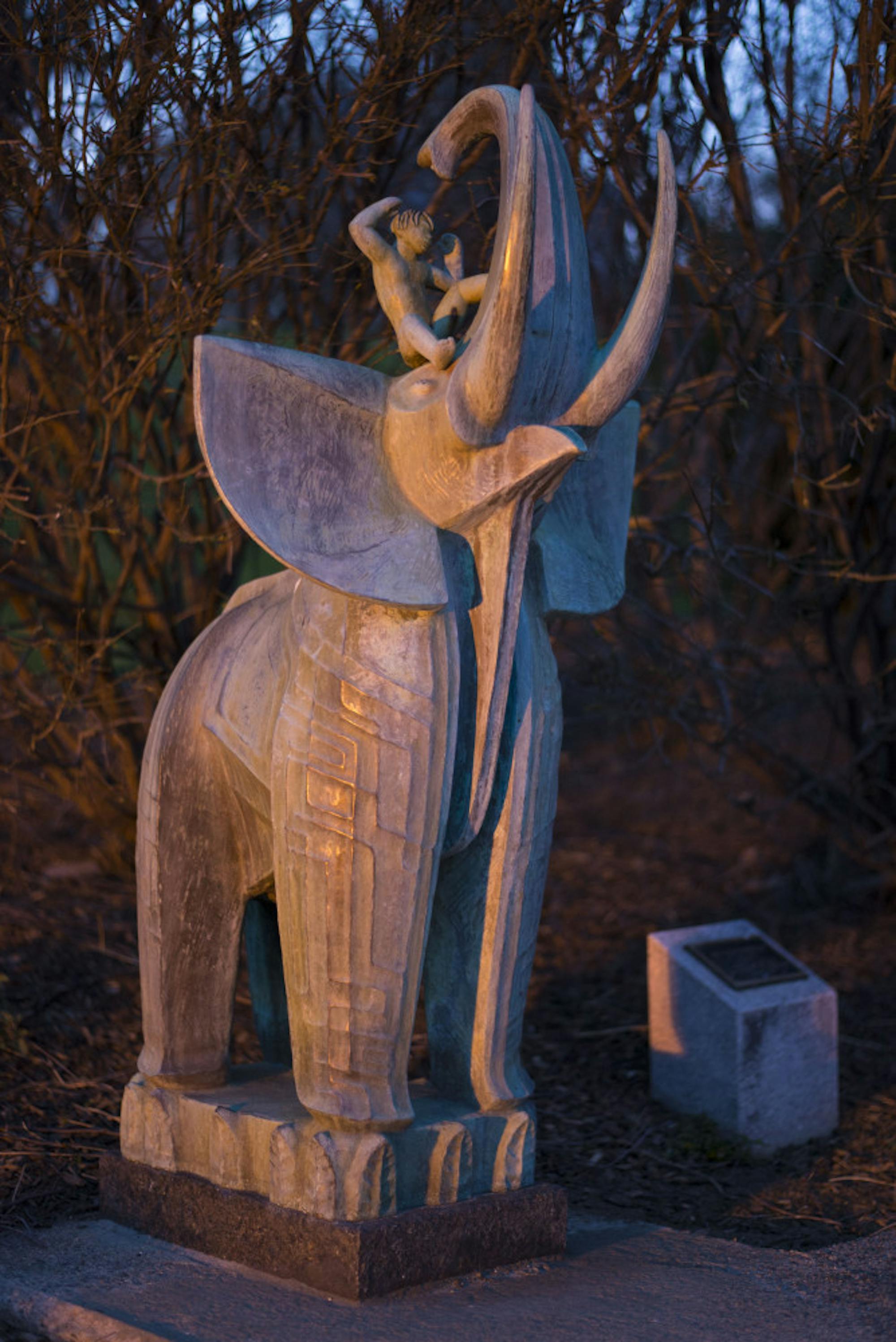In 1881, an orphaned African bush elephant was purchased as a new addition to P.T. Barnum’s circus and given the name Jumbo. Four years later, the stuffed hide of Jumbo was donated to Tufts University and the student body almost immediately made him their mascot.
At that point in time, about 12 million elephants roamed Africa and Asia. Since then, this number has decreased by 97 percent, leaving a population of fewer than 400,000 African elephants on the planet.
Deforestation and poaching continue to threaten the already fragile elephant population throughout Africa and Asia. For this reason, some members of the Tufts community have been joining the effort to save elephants from extinction through the Tufts Elephant Conservation Alliance (TECA).
According to TECA cofounder Ellen McDonald, a reference librarian at the Fletcher School, this initiative first began in November 2015 when a group of faculty members from various departments convened to discuss how the university could utilize its many resources to aid elephant conservation efforts.
McDonald pointed out that Tufts has the necessary resources and manpower to propel conservation efforts and address the complex issues that endanger the elephant population.
“The timeline is short when we look at the numbers,” McDonald said. “We’ve been inspired by everything about elephants and we have a duty to protect Jumbos' descendants.”
An elephant is slain and de-tusked every 15 minutes for its ivory tusks, which are used for unproven medicinal purposes or to satisfy the market for ivory trinkets and jewelry. TECA seeks to look at the root problems of this negative trend and work to educate students on the methods they can use to aid in protective efforts.
Some of TECA’s efforts will include monitoring elephant population sizes and migrations, tracking trade routes, visiting villages to debunk myths about ivory’s healing properties and finding ways to limit corruption and illegal trading, McDonald explained.
She added that by working to decrease corruption and inequality in impoverished African villages, dependence on wildlife trade will decline and protective policies will be more likely to be implemented.
English Lecturer Dale Peterson, another founding member of TECA, emphasized the need for Tufts to take advantage of its diverse resources to help reverse the trend toward elephant extinction.
“This is way bigger than anything in politics, because this is permanent,” Peterson said. “At this point, we should ask ourselves, ‘What is the attitude we should have? Is there a serious moral question that Jumbo raises for us as a university?’”
Peterson is currently teaching an Experimental College class, The Jumbo Imperative: On Elephants and Elephant Conservation, as one of TECA's first initiatives. The class focuses on elephants, their role in the environment and the cultural, social, economic and political factors that need to be analyzed in order for elephant conservation efforts to be effective.
The class was introduced as a method to gauge student interest in conservation efforts, according to Peterson. The class surpassed enrollment capacity a few weeks into the semester.
Sophomore Elisabeth Frick, who is taking Peterson's class, said that she has gained an understanding of the interdisciplinary approaches that are necessary for wildlife conservation efforts.
“It’s interesting that there’s more to [conservation] than just the biological aspect,” Frick said. “We’re being taught how to use computer software to help conservation efforts, we had a lecturer from the veterinary school and we had someone come in to talk about public policy.”
If the Ex-college course finishes the semester successfully, Peterson said that there would be a possibility for more elephant conservation courses at Tufts in the years to come.
“If we can bring it all to the table for elephants, we can help ensure a future for a lot of other species,” explained McDonald.
TECA hopes to fuse Tufts’ diverse resources and the community’s connection to Jumbo to preserve biodiversity and maintain the balance of fragile ecosystems of elephants.
“Take a look at Jumbo,” Peterson said. “What does he mean to you? Is he a trinket, or is he a signifier of an animal species in desperate need of our aid?”






